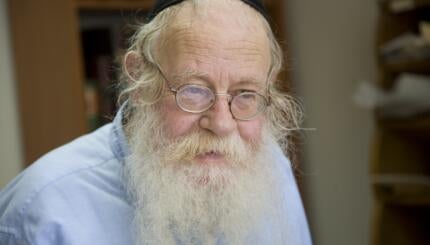Panentheism (‘All is in God’), is the doctrine that all creation is embraced by God. Panentheism is quite distinct from pantheism or monism. According to pantheistic or monistic theory, God is the name given to the universe as a whole. The ‘all’ is identified with God, so that it is meaningless to speak of God as distinct from the universe. Pantheism means that all is God and monism (the theory of ‘oneness’) that God is a synonym for the ‘stuff’ or ‘substance’ of the universe.
In panentheism, on the other hand, the ‘all’ is in God. The Being of God is both transcendent and immanent in relation to the universe, so that while it is inconceivable for there to be a universe without God it is not inconceivable for God to exist without the universe.
The panentheistic doctrine is Jewishly unconventional but traces of it are found in some Jewish sources. The Zohar speaks of God both ‘filling all worlds’ and ‘surrounding all worlds.’ The Kabbalist Hayyim Ibn Atar writes, in his Commentary, Or Ha-Hayyim (to Genesis 2:1), ‘The world is in its Creator and the light of the Creator is in the whole world.’
The German Talmudist Moses of Taku (early thirteenth century) attacked the medieval hymn Shir Ha-Yihud (‘Song of Unity’) for its panentheistic leanings. In the section of this hymn for recital on the third day of the week the words are found: ‘All of them are in Thee and Thou art in all of them’ and: ‘Thou surroundest all and fillest all and when all exists Thou art in all.’
With your help, My Jewish Learning can provide endless opportunities for learning, connection and discovery.
In Hasidic Thought
The panentheisic doctrine surfaced again in Hasidism, especially in the Habad version. While the Mitnaggedim understood the verse: ‘The whole earth is full of His glory (Isaiah 6:3)’ to mean no more than that God is manifest in the universe and His providence extends over all, in the Hasidic understanding the verse means that God is literally in all things.
This doctrine was one of the main theological counts against Hasidism, the Mitnaggedim believing that the panentheistic doctrine, according to which God is literally in all things, to be sheer heresy.
Any tendency to blur the distinction between the sacred and the profane, the clean and the unclean, good and evil, poses the greatest threat to a monotheistic religion like Judaism. If God is in all and all is in God, what is to be made of the laws of the Torah based on these distinctions?
Habad makes an attempt to deal with the problem by postulating that, from God’s point of view, so to speak, there is no universe at all. It is only from the point of view of God’s creatures that the universe appears to enjoy an existence apart from God.
Reprinted from The Jewish Religion: A Companion, published by Oxford University Press.
Hasidic
Pronounced: khah-SID-ik, Origin: Hebrew, a stream within ultra-Orthodox Judaism that grew out of an 18th-century mystical revival movement.
Torah
Pronunced: TORE-uh, Origin: Hebrew, the Five Books of Moses.
Zohar
Pronounced: ZOE-har, Origin: Aramaic, a Torah commentary and foundational text of Jewish mysticism.


